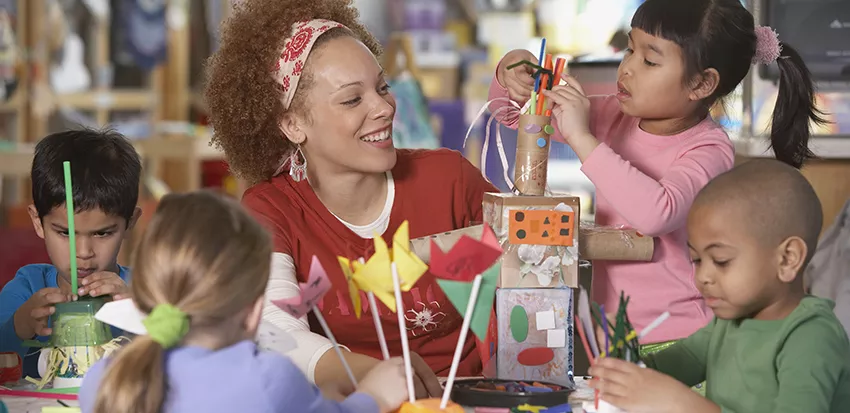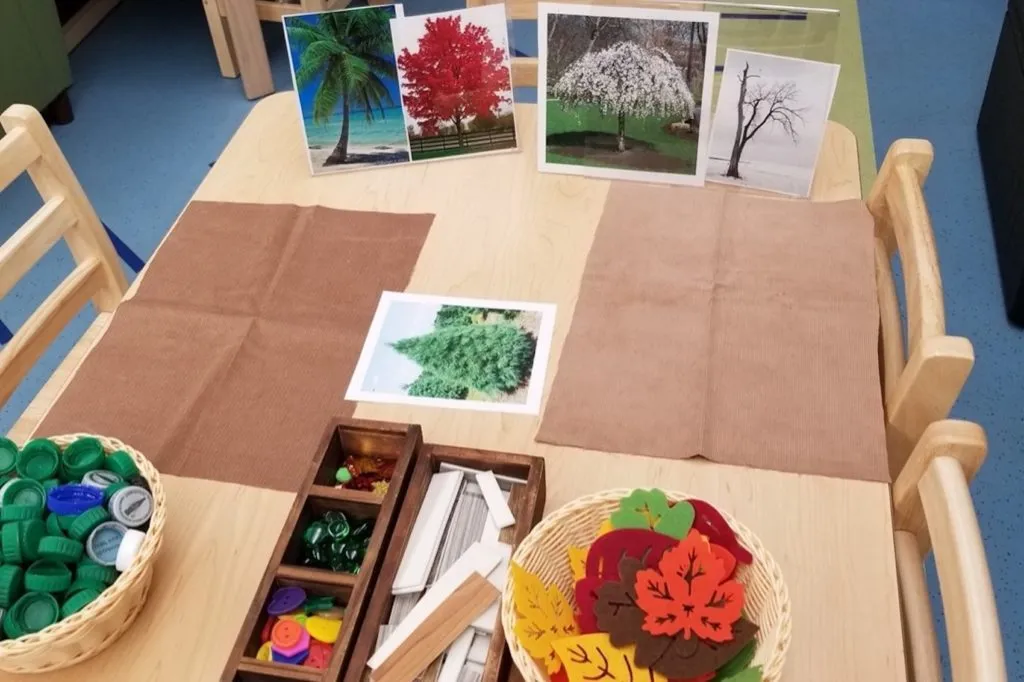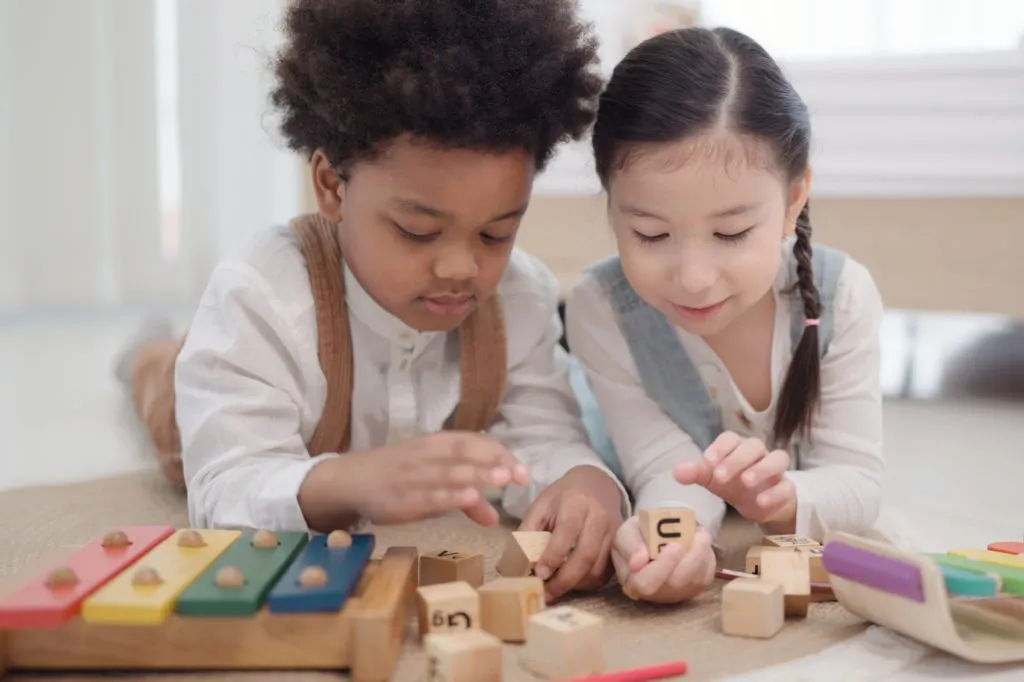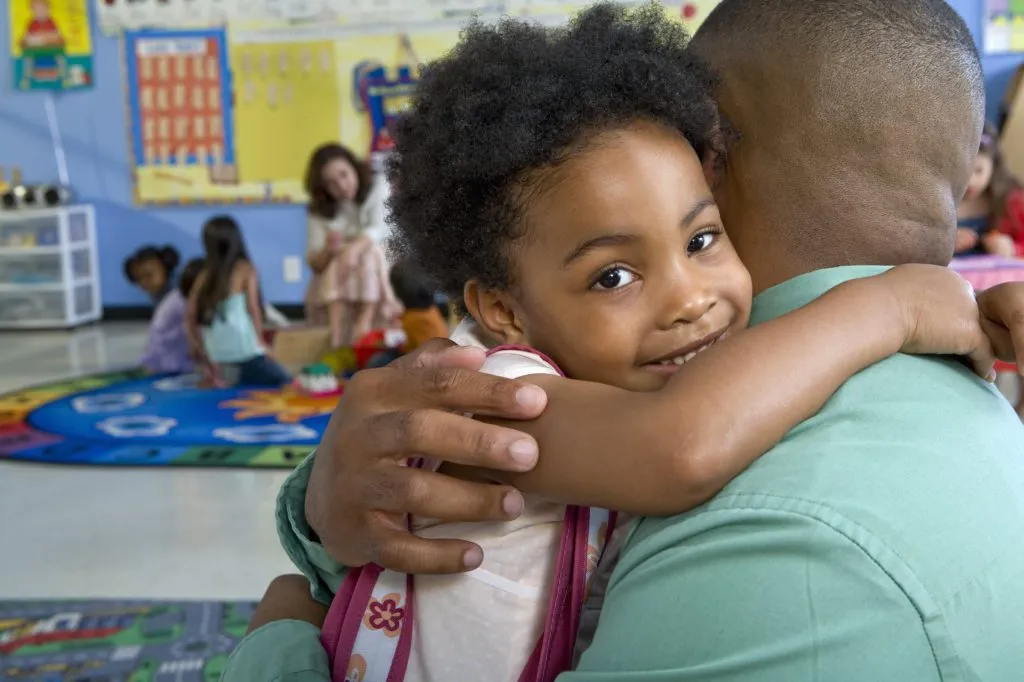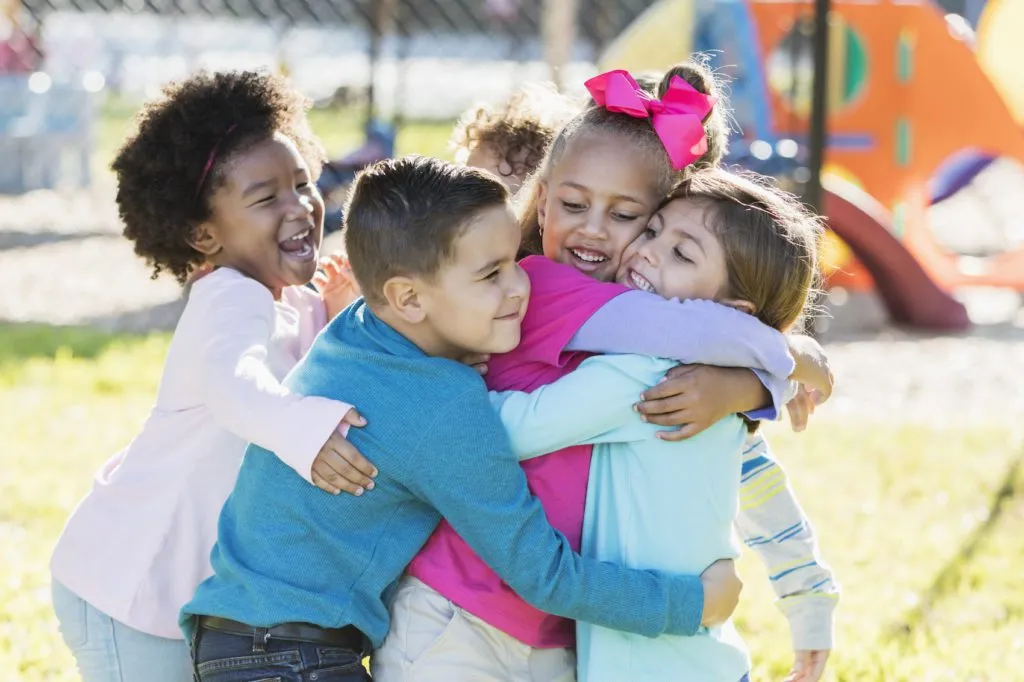The First Six Weeks of School: Seeing the Learning Happen
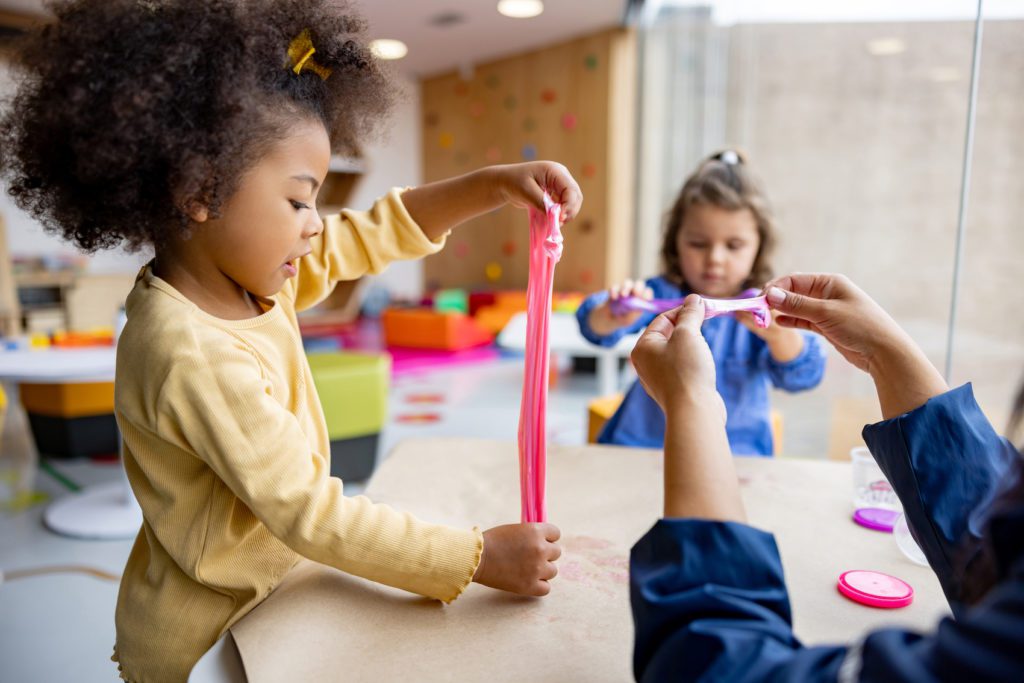
How will you make adjustments based on what you have learned about children during the first weeks of school?
As teachers begin the new school year, the first six weeks pass by in a whirlwind. Classroom routines, rules, and structures have been established while setting up thought-provoking invitations to learn. Now, it is time to take a deep breath and look around the room. Look around both when it is empty, silent, and played-in and when children are fully engaged, happily humming in their playful learning experiences. Ask yourself, “What learning do I see happening?”
- Is there enough space in the Dramatic Play area so children can pretend to cook while serving a scrumptious dinner to their friends?
- Are art materials displayed so children can freely choose and be successful in their explorations?
- Is there enough time in the schedule for children to be fully engaged in play for over an hour?
- Are transitions intentional, efficient, and engaging?
All week, educators on The Hub have been discussing their experiences with making adjustments to their learning environment. Below, we’re highlighting some of our favorite things shared this week.
I moved trains from blocks to toys and games so more students can join. I moved sand closer to the front of the room… closer to the garbage for messes.
Kelsee Y., New Jersey
Playdough is a big hit. What I learned was whatever I introduced in the interest area first, the students are still gravitating to. I’m spending more time in the interest areas trying to expand their learning.
Cheryl W, Illinois
Students are loving blocks and building because they are free to build all kinds of different things.
Felicia S., Virginia
We keep rotating materials. We go in the interest area and model and show how to use the materials. I’m still working on stepping back and seeing what they do with it because we can learn as much from them or more so than they can from us.
Colette V., New Jersey
Making adjustments in the moment or after a reflective day will help your routines and structures flow. For example, I noticed my Art area had bins full of materials that children could not see. I swapped them out with baskets and clear bins for independent use. The children in the Block area started building with ramps and tracks on the tables, so tables needed to be moved for better access and use.
While reflecting on the first six weeks, take the opportunity to also review your data and observations. If you find difficulty connecting with a child, plan intentional one-on-one moments. If a child is not joining in play, what may be holding them back? The children have learned much the last six weeks, but what learning have you observed?
- Are you missing teachable moments?
- Are you seeing the whole picture?
- Are you making connections with every child?
Just as the “First Six Weeks of School: Invitations to Learning” blog shared the observe, reflect, and respond process to create provocations, it is important to remember this in the assessment process from The Creative Curriculum for Preschool, Volume 1: The Foundation, Chapter 4.
- Observe: What knowledge, skills, and/or abilities did this child demonstrate?
- Reflect: How does what I observed connect to the objectives for development and learning?
- Respond: What might I do next to support this child?
Every child and every community are unique, and the adjustments you make will look different in every classroom and every year. The effort that you put into observing children and continually making adjustments will pay off all year long.
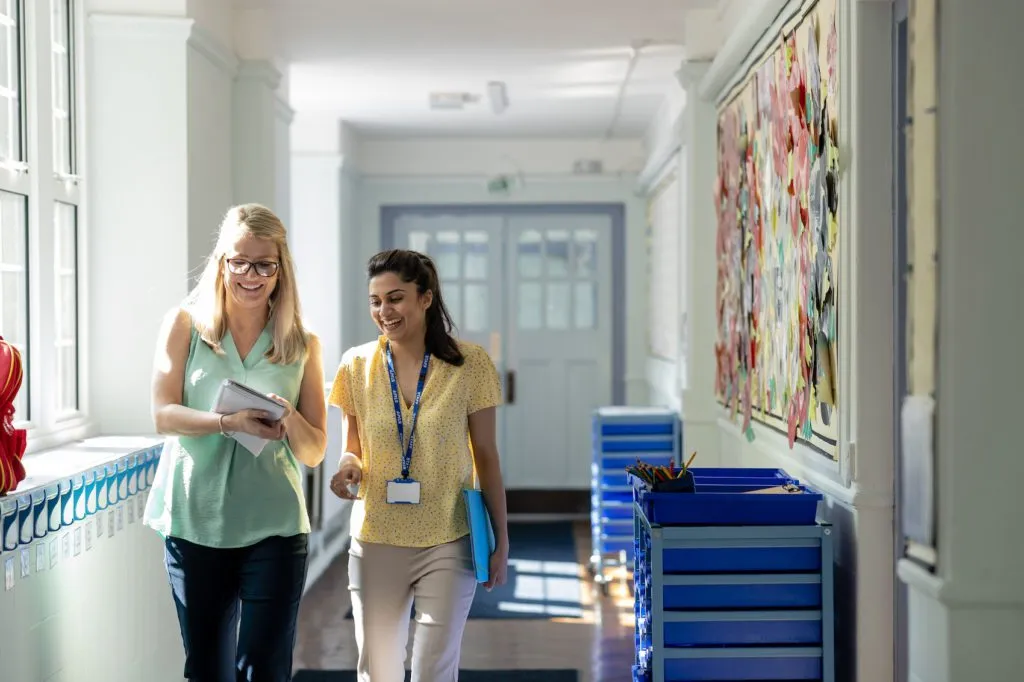
Interested in joining the conversation?
Teachers with access to the Teaching Strategies platform can join conversations with other educators in The Hub’s First Six Weeks Forum.

About the Author: Crystal Kuharski
Crystal Kuharski says her second grade career aptitude test said “you will be a teacher.” Since 2001, she has taught elementary and preschool-age children, directed preschool programs, and trained educators on best hands-on practices. After deciding she wanted to teach adult learners, she earned a Master’s degree in Early Literacy and Reading from Walden University and is currently a doctoral candidate with a dissertation on play in early childhood.
–
